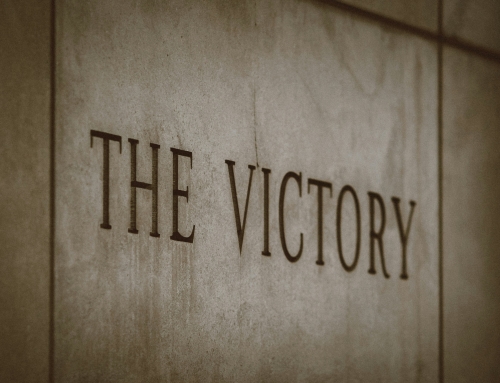Sermon Summary
Godliness: Our Task and Responsibility
I would like us to think of the process of ordination for priests.
The word “train” in 1 Timothy 4:7-8 is γυμνάζω gumnazo: means training of body or mind, like in a gymnasium.
“Godliness” in Greek is εὐσέβεια eusebeia – means godliness, well well-directed piety.
It is about being pious and being devoted to the reverence of God.
Who is in charge of our godliness training?
In the Old Testament, the priests were in charge. The priests played the middlemen who mediated between God and His people. But Jesus comes in the New Testament and declares that all who believe in Him are priests unto God. That means that godliness is our task and our responsibility.
Your personal godliness is nobody else’s responsibility but your own.
Let’s see the spiritual body parts that we have while considering the priest’s ordination process:
1. We must cultivate our calling
The ordination of Aaron the high priest and the Levites as priests. The Levites were the most unworthy people because of the sin committed by their forefather Levi using the rite of circumcision for his own purpose of revenge.
But it doesn’t matter what you have done before, or who you are, what matters is that your father is a Levite. God chose and claimed the Levites for His own, to be His priests.
Jesus places a holy calling on our lives, one that is meaningful.
2 Timothy 1:9 (NKJ) who has saved us and called us with a holy calling, not according to our works, but according to His own purpose and grace which was given to us in Christ Jesus before time began,
This means we need to cultivate our calling, to deepen our responsibility for God’s calling in our lives.
We are responsible for doing the things priests do, to offer sacrifices to God daily, to keep the fire of prayer, the fire of worship, the fire of gathering of saints, this is our cross, we have to bear it on our shoulders.
Ephesians 4:1 (NKJ) I, therefore, the prisoner of the Lord, beseech you to walk worthy of the calling with which you were called,
2. We must have pure intentions
Leviticus 8:6 (NKJ) Then Moses brought Aaron and his sons and washed them with water.
The washing of water implied the washing away of impure motivations. When Jesus washed the feet of His disciples it implied that one of the disciples was not clean. John 13:10
The sons of Eli took advantage of their priestly positions and used them for their personal benefit. We must not be like that. Hebrews 10:22, Matthew 5:8
We need to reflect on our intentions and purposes. We need to reflect on our prayer life, am I praying for my will or God’s will, is it praying for what I want, or what God wants?
3. We must surrender our sins and our successes
After washing with water, Moses puts the priestly garments on them. Leviticus 8:6-9, Leviticus 8:13
In the Old Testament, the priests don’t prepare their own garments, it was Moses who prepared them. Likewise, Jesus is the high priest who clothes us with the spiritual garments of salvation, the robes of righteousness for our souls (not bodies). Isaiah 61:10
This is the righteousness of Jesus Christ Himself which is put onto us. John 17:19. For the saint’s sake, the saints who believe in Jesus Christ. Galatians 3:27
You are so beautiful in God’s eyes because you have put on Christ. God loves you because of Jesus Christ’s works and not your works and your deeds. Everything that Jesus did should not be exchanged for filthy garments of our own deeds. Isaiah 64:6
Think of the elders in Revelation 4:10 who cast their crowns before God’s throne, all their successes and good deeds are laid down before God because it is not by their doing but God’s grace. Ephesians 4:22-24, 2 Corinthians 5:17
4. We must make the best use of our time
Leviticus 8:10-12. The anointing oil represents the Holy Spirit.
The Hebrew word for “anoint” is משׁח mashach – mashah: means to smear. From this word Mashah comes the word “Messiah” our Lord Jesus Christ, full of the Holy Spirit.
Luke 4:17-19, 2 Corinthians 1:21-22.
The apostle Paul says to be filled with the Holy Spirit. How? Ephesians 5:15-18. To be filled with the Spirit, we need to make the best use of our time, to study the Word of God, to be filled with the Word of God. We need to search the scriptures to find the Word of God. Our schedules need to elevate the things of God. Our schedules need to be purged of the desires of the flesh. Galatians 5:16-17. Don’t waste your time. Make the best use of your time. Put away the things of this world that take up your time. Take your calling seriously.
5. We must train in receiving the love of our God
After anointing Aaron, Moses performs a sin offering and a burnt offering.
Leviticus 8:14-21. Sin offering cleanses our sins. Burnt offering reconciles us to God, as it pays the price of sin.
First, Jesus is our sin offering, through His blood. 1 John 1:7
Secondly, as our burnt offering, Jesus Christ’s sacrifice on the cross, satisfies the wrath of God and reconciles us to God. All sin is cleansed, not just some sin, all sin.
John 15:9. “Abide”: μένω meno. God is saying to let His love be your home, abide in His love.
Reverend Abraham Park said the Word of God is our home. Hebrews 12:2. Who is the joy that was set before Jesus? It is us.
6. We must dedicate our ears, hands and feet to God’s service
Ordination offering is where Moses applies the blood of the sacrificial offering and applies it on the right thumb, right toe, and right ear of the high priest, and priests. Leviticus 8:23-24. This right side symbolizes both sides, the right side is the more important part of our body. The Hebrew word for “ordination” is melu, which comes from the word “mala” which means to be full of something.
So the hands (deeds), feet (destination), and ears (thoughts) must be filled with the things and thoughts of God. This is our responsibility as spiritual priests. Psalm 24:3-4. Stand in holy place (feet), clean hands (hands), pure heart (ears). The same 3 things mentioned that should be anointed.
7. We must train in humility
After the ordination offering, Moses sprinkles oil and blood on Aaron’s garments, and the priest’s garments. Leviticus 8:30. Oil represents the Holy Spirit. The blood represents Jesus’ atonement sacrifice.
The Holy Spirit’s job is to connect us to Jesus, like a bridge. 1 Peter 1:2.
Confessing our sins is also part of our training in godliness. James 5:16
8. We must train our spiritual eyes to see God
Leviticus 8:31-32. Aaron and the priests (his sons) eat inside the Tabernacle. It is an ordination meal. It symbolizes the special privilege that priests enjoy, the privilege of dwelling in God’s presence, to have fellowship with Him. Only priests can do this. This is called “the discipline of God mindfulness”. We therefore must train our spiritual eyes and ears like this, to see the spiritual presence of God, and to be mindful of who is in the room with us. 2 Corinthians 4:18.
Conclusion
These same 8 responsibilities are also ours, as priests of Jesus Christ.
Brothers and sisters, godliness is our privilege, a qualifying mark of a true believer. The evidence that hell lies behind and heaven lies ahead of us. It is our task, our responsibility, our inheritance.
Bishop JC Rile wrote in the 1800s to the young men: Tomorrow is the devil’s day but today’s is God’s. Satan does not care how spiritual your intentions are, or how foolish your resolutions may be, so long as it is for tomorrow. Answer him “Satan! No, it shall be Today, TODAY!”
AMEN.




